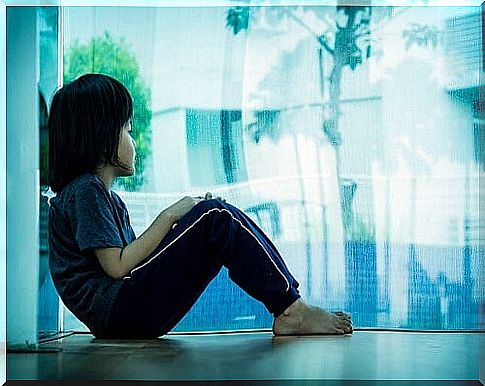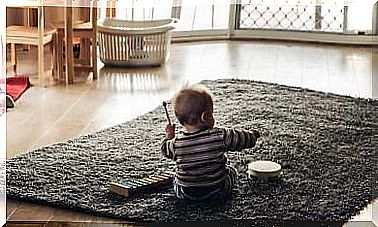Persistent Grief In Children: What It Is And How To Deal With It

Children are able to understand the concept of death from the age of 5. When a loved one dies, they experience deep sadness and are sometimes unable to express it properly. Therefore, it is important to know what the symptoms of persistent bereavement are in children in order to help them overcome it in a healthy way.
What is persistent bereavement in children?
This pathological pain occurs when the feeling of sadness lasts longer than usual. This, of course, stems from a recent serious leak and can last for years if not properly treated by a specialist.
Death is a natural process and bereavement is part of it. It is important to be vigilant in case the symptoms are prolonged and not to forget that for children it is a process that, in addition to being painful, is a source of confusion.
It is also important to point out that although bereavement usually occurs when a close person dies, it can also occur in other situations. As in the case of separation from parents.

Symptoms of bereavement
Symptoms of persistent bereavement in children vary widely and do not always all occur at the same time. You just need to locate one so you can take the necessary steps before the situation can precipitate.
Depression
One of the first symptoms of persistent bereavement is when the child appears immersed in a state of depression. He is apathetic, he does not want to play nor socialize. He is sad and cries for whatever reason, although he can get aggressive at times.
Problems falling asleep
Another of the most frequent symptoms is that the child recurrently dreams of the person who is no longer there. On many occasions he will feel fear and wake up in the middle of the night. Insomnia is another problem that adds to all those caused by persistent bereavement.
Sadness
This is one of the most present feelings in children going through this delicate stage. On many occasions, talk about your loved one, imagining hearing or seeing them in certain places. Unfortunately, anxiety and depression become the negative protagonists of this psychological state.

What to do in case of persistent bereavement?
It is important to determine how and when to convey information to children and how to manage all the feelings and behaviors that are provoked. It is necessary to teach him how to handle this painful loss. That is, how to accept it, express it, adapt to the new situation without the presence of the loved one. Of course, it is a good thing to place this figure within positive and beautiful memories, capable of diverting attention from the tragic event.
Therapies
To deal with this type of bereavement, it is useful for both the child and the rest of the family, if necessary, to rely on the care of a specialist in the matter. The doctor will develop a personalized therapy, analyzing all the aspects that can help the minor to get out of this situation. In fact, someone will need to be able to examine the feelings and behaviors that emerged after the death of a loved one. There are three types of therapy: emotional, behavioral and cognitive.
Patience, understanding and love
It is essential that in the family unit there is understanding and love for the feelings of others and, above all, of the little ones of the house. Patience is another key factor. In these cases it is important to follow the therapist’s recommendations, to prevent the situation and discouragement from worsening. Always keeping control of the situation is essential, to be able to go further.
Pathological bereavement in children is an extremely painful process that must be treated as quickly as possible to avoid consequences in adult life. Love and understanding are a key part in coping with this complicated experience.









